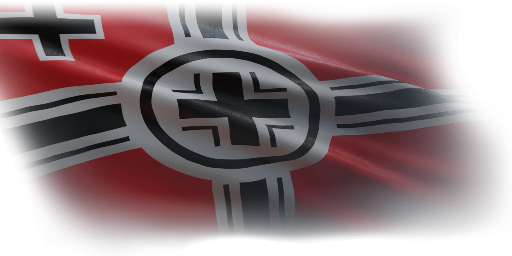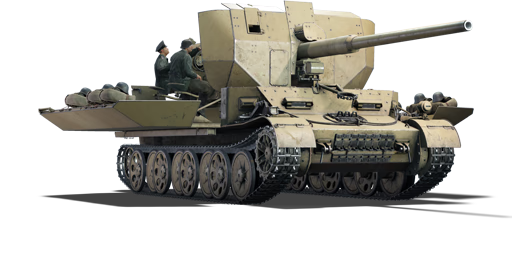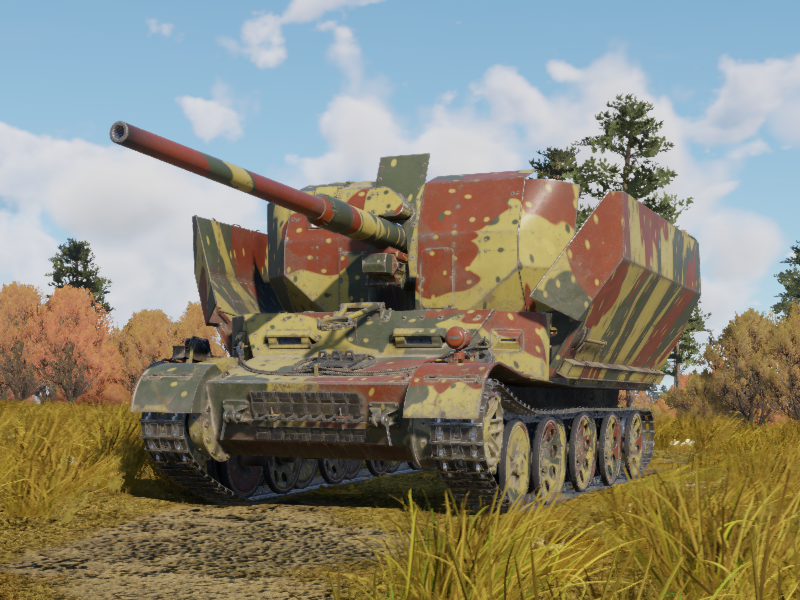


The Pz. Sfl. IVc., also known as the Grille 10 or the Versuchsflakwagen (VFW) (experimental anti-air vehicle), was a prototype multipurpose self-propelled gun designed by Krupp in 1941 based on an extensively modified Panzer IV chassis. Initially designed as a light assault gun, the design was changed after realisation that its intended armament, the 88 mm Flak cannon, was also effective in an anti-air role. The VFW was designed with a fully traversable open-top turret and foldable armoured panels to provide some protection when used against ground targets. Despite only three vehicles being produced and not accepted for service, at least one was assigned to the 26th Panzer Division in Italy, although none survived the war.
Introduced during Update 1.87 "Locked On" as a reward in the 2019 "Battlefield Engineer" event, the VFW is a fast, mobile glass cannon tank destroyer with an option to deploy its armoured panels before the start of a match. The usage of optional armour is a matter of preference, considering the tradeoffs: With deployed panels, the VFW gains extra protection against machine gun rounds and spaced armour at the cost of losing full gun traverse and thus restricting it to a sniping role, while retracting them allows the VFW to fully traverse its gun towards its target and improving its reload speed, but leaving the crew exposed to incoming fire. Because of this, the VFW can easily fulfil the needs for a support vehicle, either as a sniper, fire support vehicle, or performing hit-and-runs.
| Ammunition | Type | Armor penetration (mm) at a distance: | |||||
|---|---|---|---|---|---|---|---|
| 10 m | 100 m | 500 m | 1000 m | 1500 m | 2000 m | ||
| APCBC | 230 | 228 | 215 | 201 | 188 | 175 | |
| HE-TF | 25 | 25 | 24 | 22 | 20 | 19 | |
| APCR | 277 | 272 | 250 | 226 | 204 | 184 | |
| Ammunition | Type | Armor penetration (mm) at a distance: | |||||
|---|---|---|---|---|---|---|---|
| 10 m | 100 m | 500 m | 1000 m | 1500 m | 2000 m | ||
| APCBC | 230 | 228 | 215 | 201 | 188 | 175 | |
| HE-TF | 25 | 25 | 24 | 22 | 20 | 19 | |
| APCR | 277 | 272 | 250 | 226 | 204 | 184 | |







 2 x (115 / 180 / 230) %
2 x (115 / 180 / 230) % 
 2 x 166 %
2 x 166 % 

Mobility | |
|---|---|
Protection | |
|---|---|
Firepower | |
|---|---|
